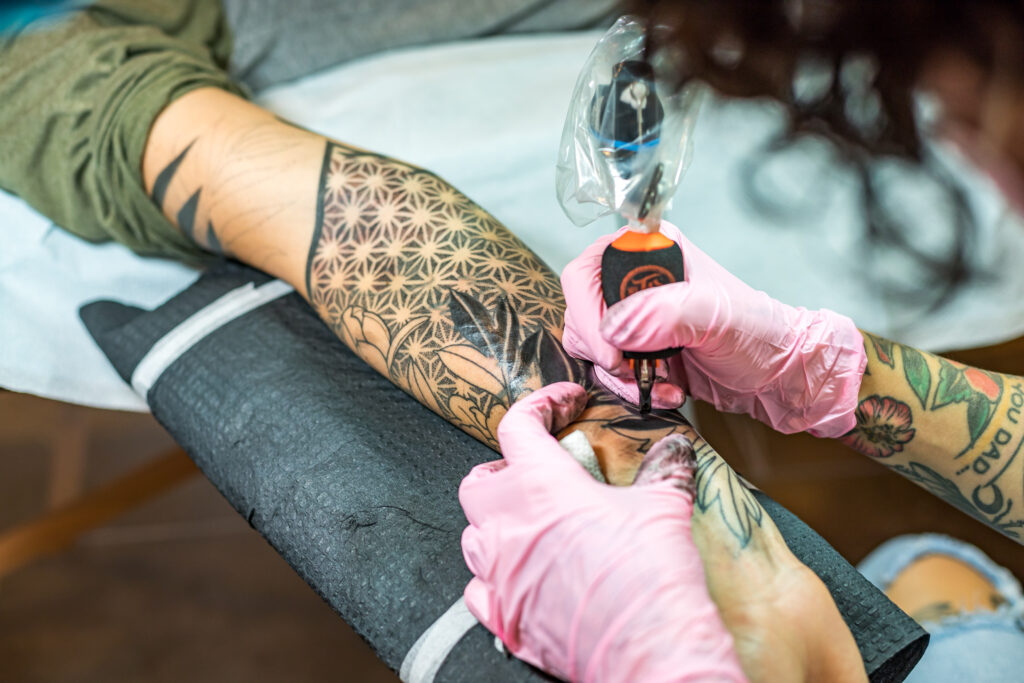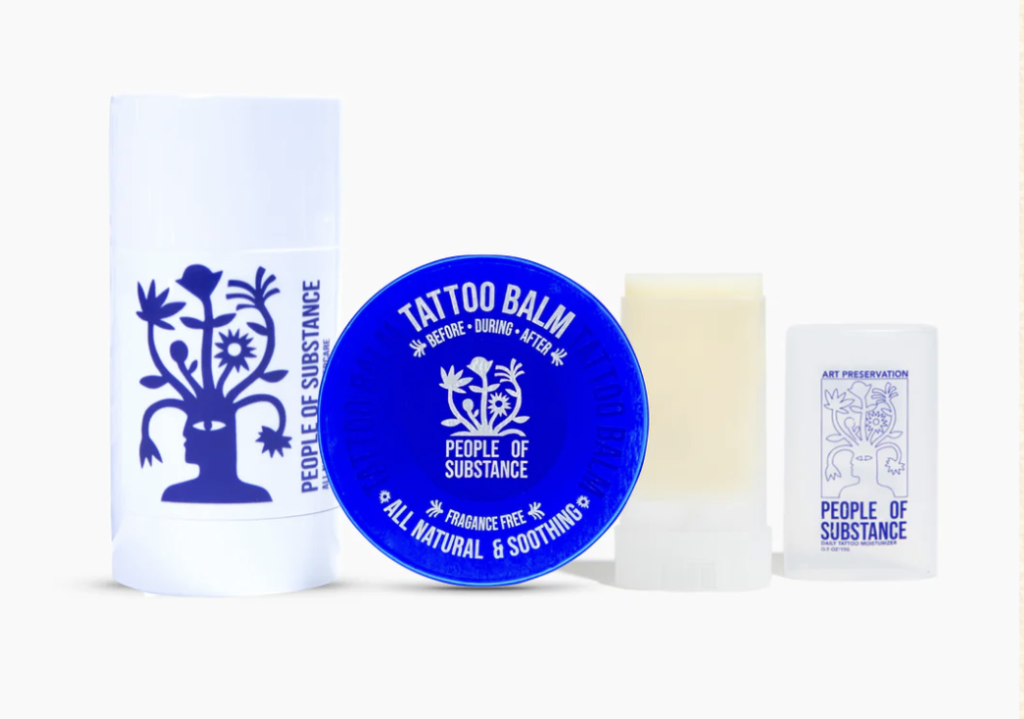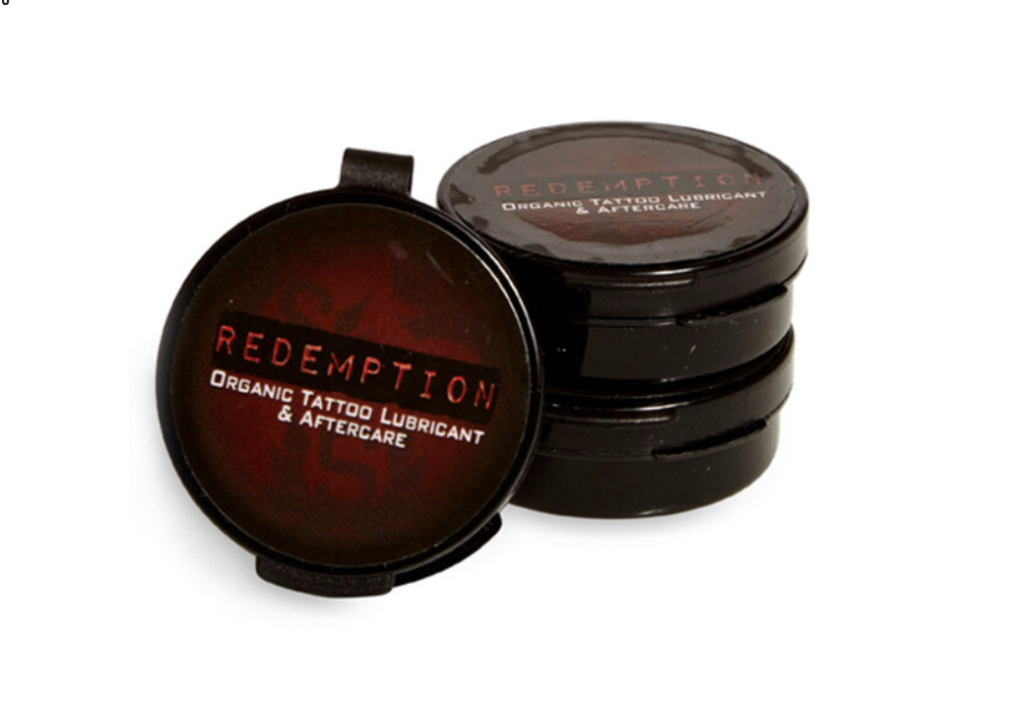
Tattoos are a form of art that allows individuals to express themselves, commemorate meaningful moments, or simply appreciate the beauty of body art. Proper aftercare is vital to ensure a tattoo heals well and maintains its vibrancy over time. While there are various products available for tattoo aftercare, it’s essential to be cautious when using petroleum-based products. Below, we’ll explore the drawbacks of using petroleum-based products for tattoo aftercare.
Clogging Pores and Inhibiting Healing
Petroleum-based products, like petroleum jelly, create a barrier on the skin’s surface, which can clog pores and prevent the skin from breathing. Tattoos need oxygen to heal properly. When pores are clogged, it can lead to complications such as infection, delayed healing, and an overall compromised healing process.
Potential Allergic Reactions
Petroleum-based products can trigger allergic reactions in some individuals. These reactions can manifest as redness, itching, swelling, rashes, or other forms of irritation. Allergies to petroleum-based ingredients can significantly impede the healing process and adversely affect the appearance of the tattoo.
Lack of Essential Nutrients
Petroleum-based products lack essential nutrients beneficial for healing and maintaining the tattoo’s vibrancy. They do not typically contain vitamins or natural extracts that aid in the healing process and soothe the skin. Tattoo-specific aftercare products are carefully formulated with ingredients like vitamins A, D, and E, which are essential for optimal healing and skin nourishment.
Moisture Imbalance
While maintaining proper moisture is crucial for tattoo healing, petroleum-based products can create an excess of moisture on the skin. Too much moisture can soften the scab prematurely, leading to ink leakage and potential color fading. Striking the right balance of moisture is key to successful healing.
Potential Discoloration
Certain petroleum-based products may contribute to discoloration or fading of the tattoo over time. This can result in a tattoo losing its vibrancy and looking less sharp than intended. The components in these products can interact with the tattoo ink and cause it to fade or change in hue.
Not Tailored for Tattoos
Petroleum-based products were not specifically designed for tattoo aftercare. Tattoo-specific aftercare products are formulated to address the unique needs of a freshly tattooed area. They aim to aid healing, minimize complications, and enhance the tattoo’s longevity and appearance.
In conclusion, while petroleum-based products like petroleum jelly may seem like a convenient option for skin care, they are not the best choice for tattoo aftercare. To ensure the best healing and preservation of your tattoo’s vibrancy, it’s advisable to use products specifically designed for tattoo aftercare. Always follow the aftercare instructions provided by your tattoo artist and consult a healthcare professional if you experience any adverse reactions during the healing process. Your tattoo’s health and appearance are worth the investment in proper aftercare.
Products We Recommend and Carry

Let’s face it, the traditional aftercare market is split between two categories of products: drug-store ointment/moisturizers full of pore-clogging and toxic chemicals, and cheaply made tattoo lotions, oils and creams.
Our products are made using natural and organic ingredients that are responsibly sourced, that are great for your body and even better for your tattoos.

Redemption quickly became an industry standard, as it was the FIRST and ONLY 100% ORGANIC & Natural Tattoo Aftercare. What does that mean? It means that there are no chemicals or fillers. Every ingredient in Redemption has its purpose. Weather it be the moisturizing and protection of coconut oil or the anti-inflammatory properties of arnica, Redemption has you covered.